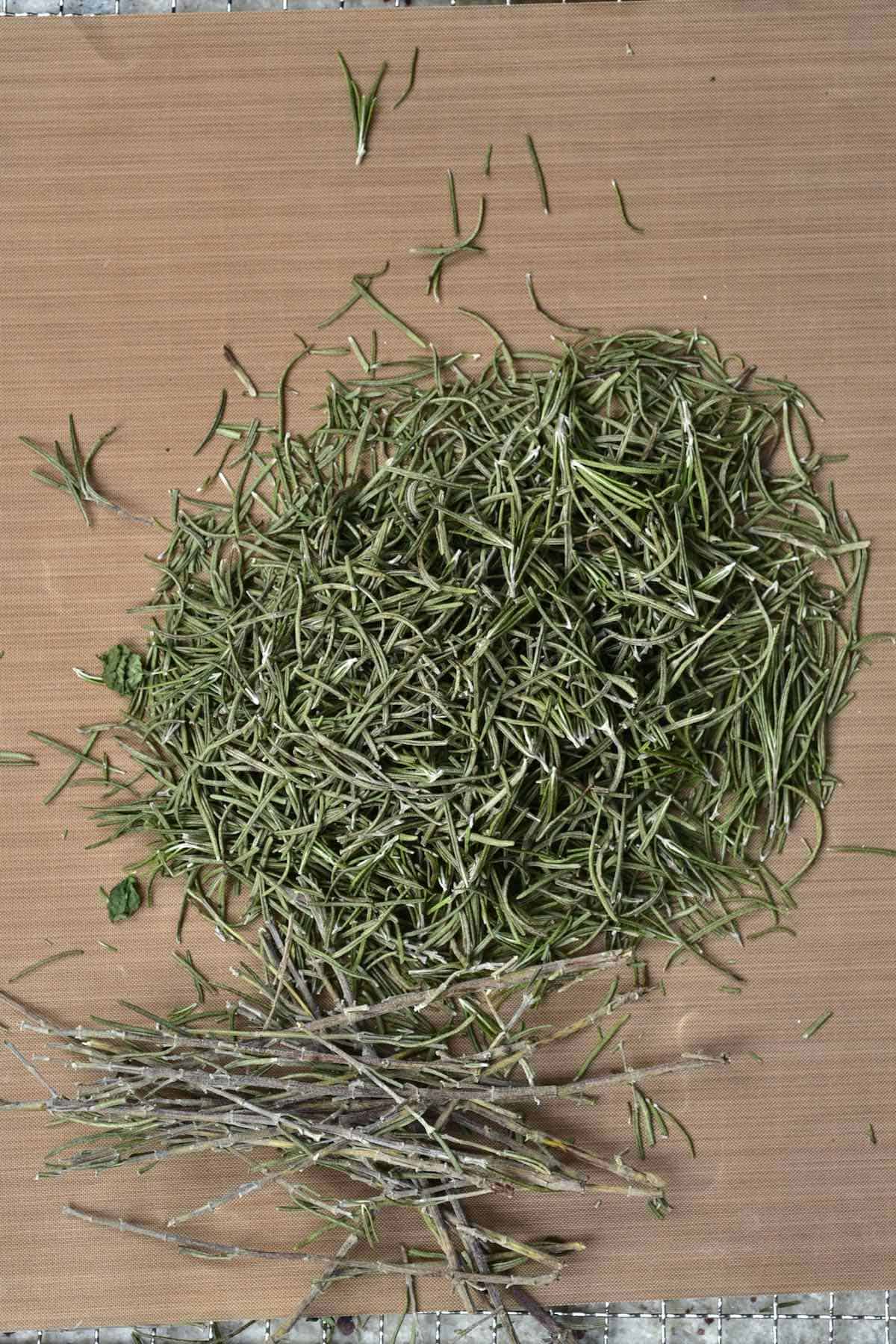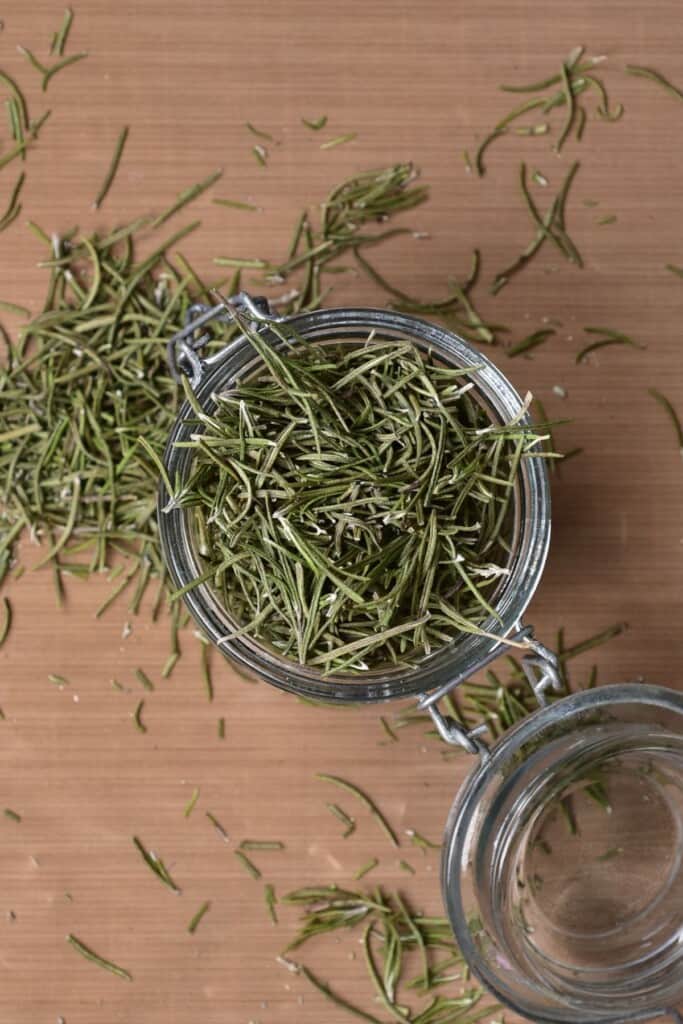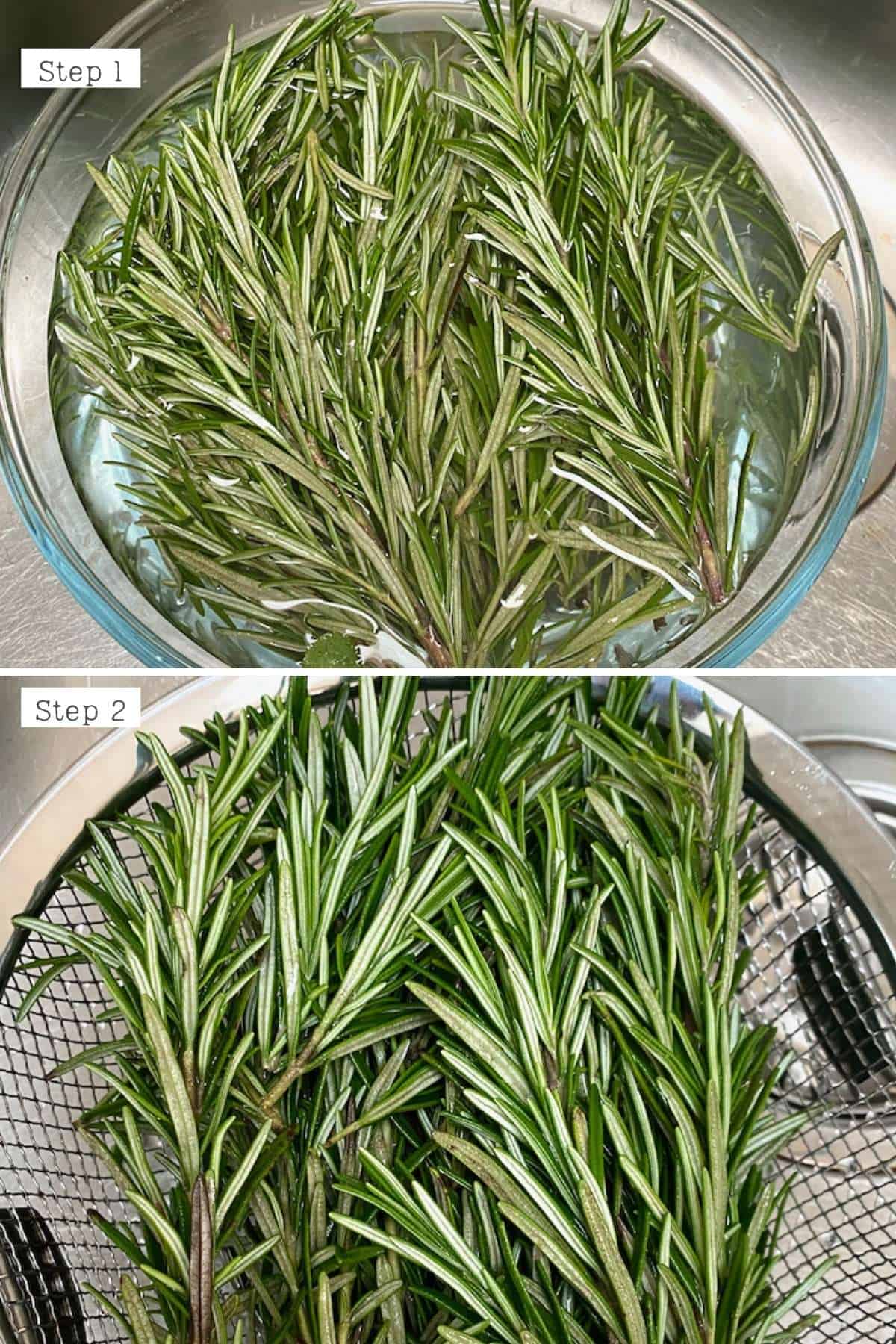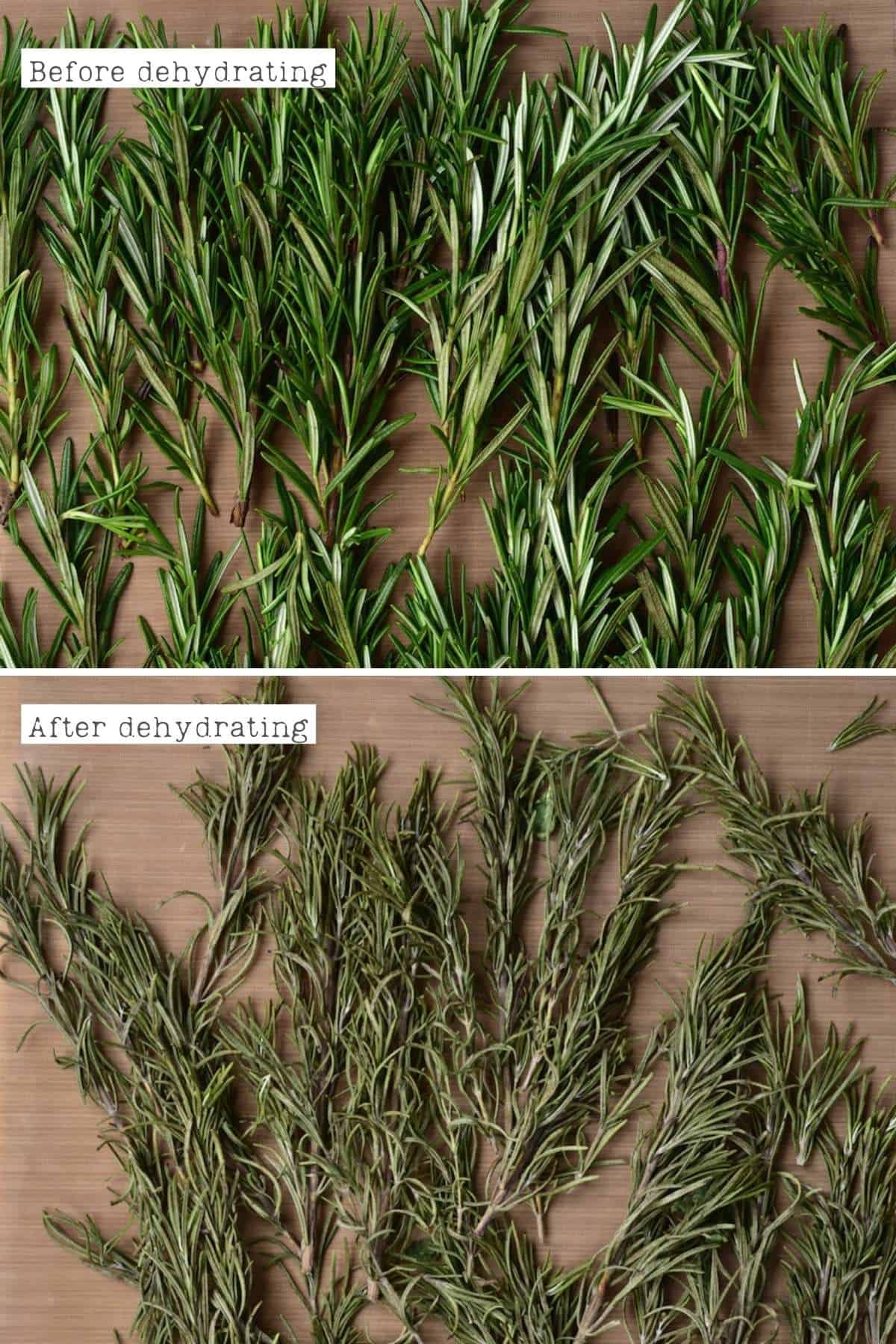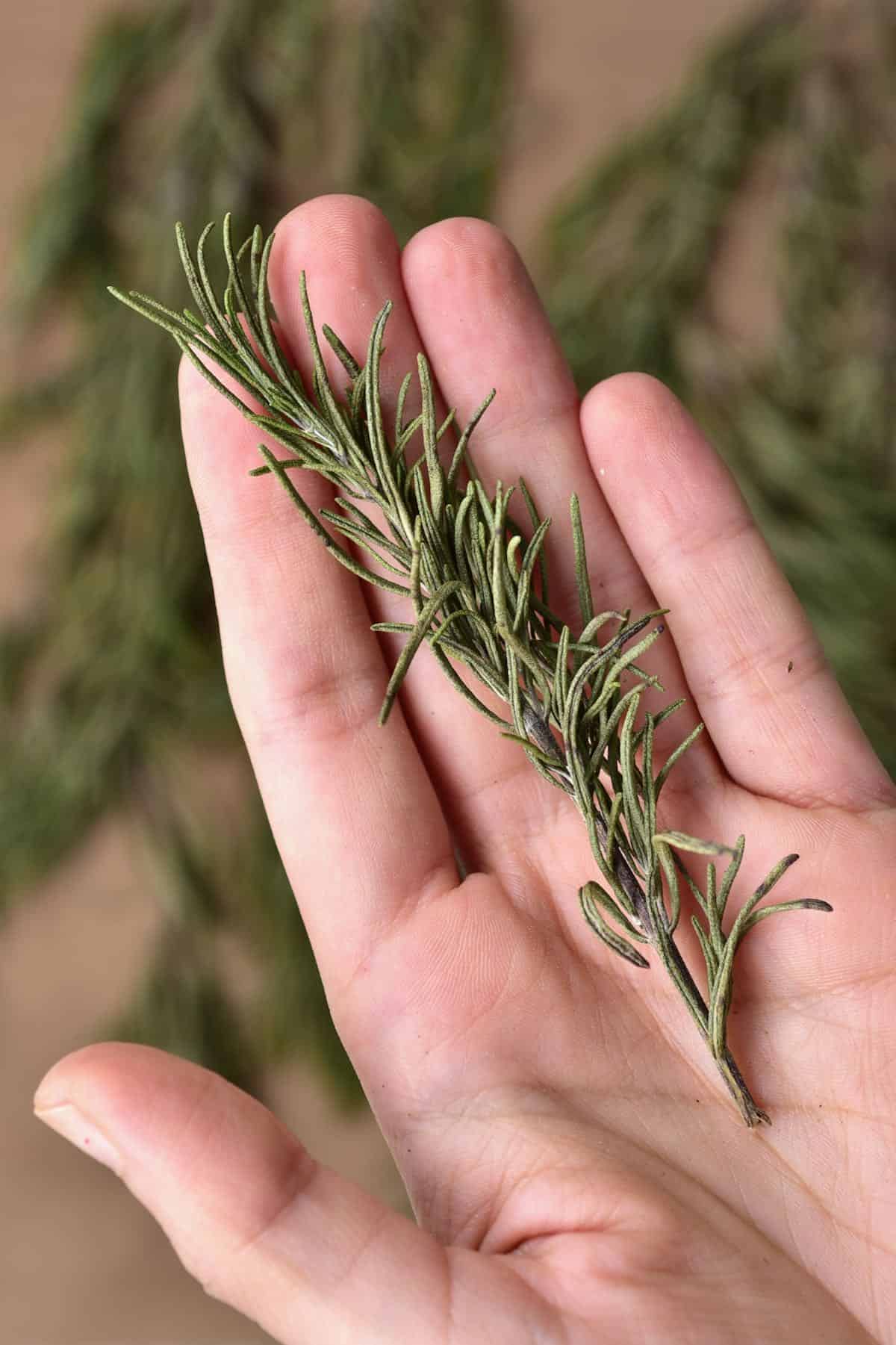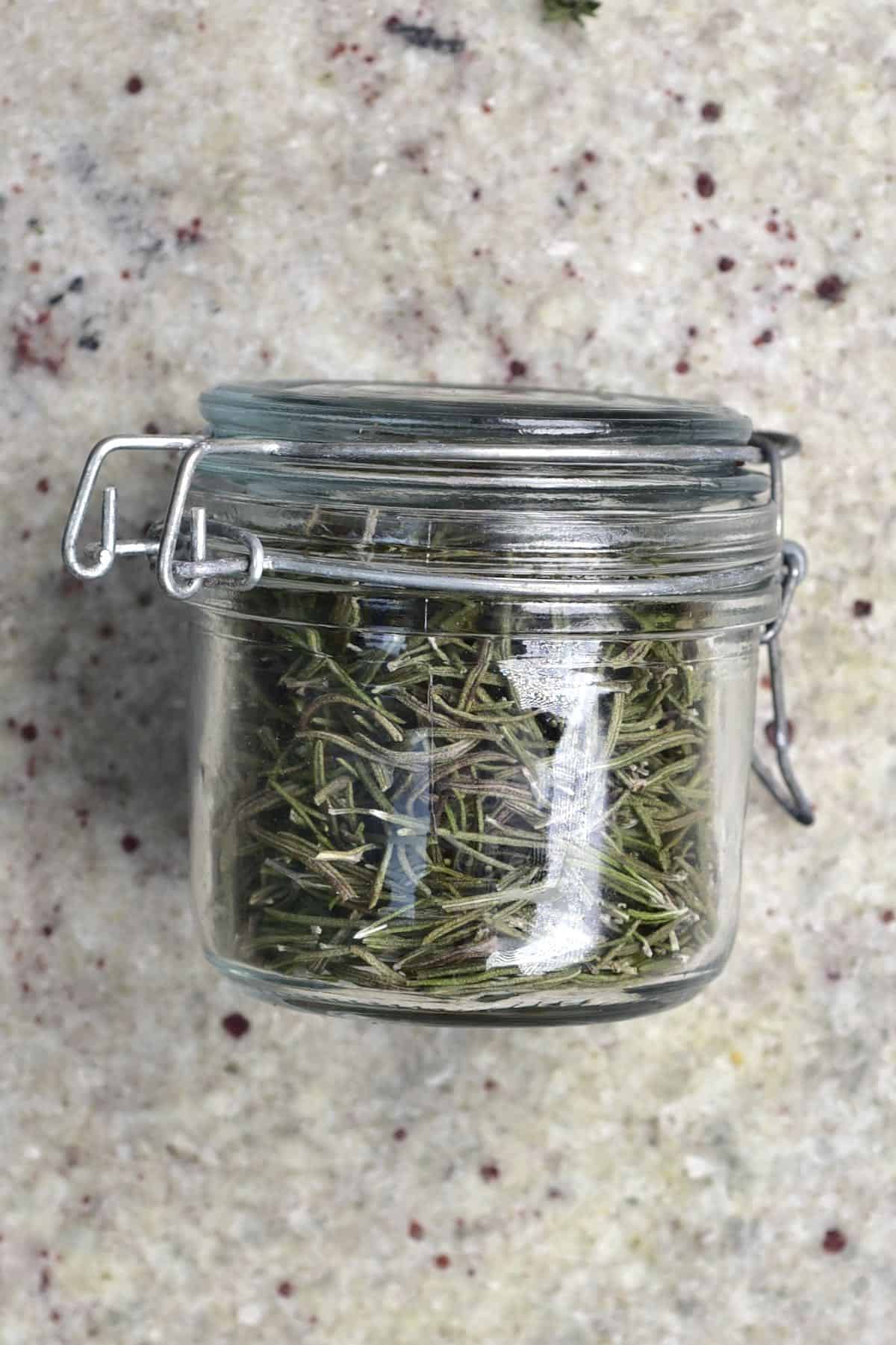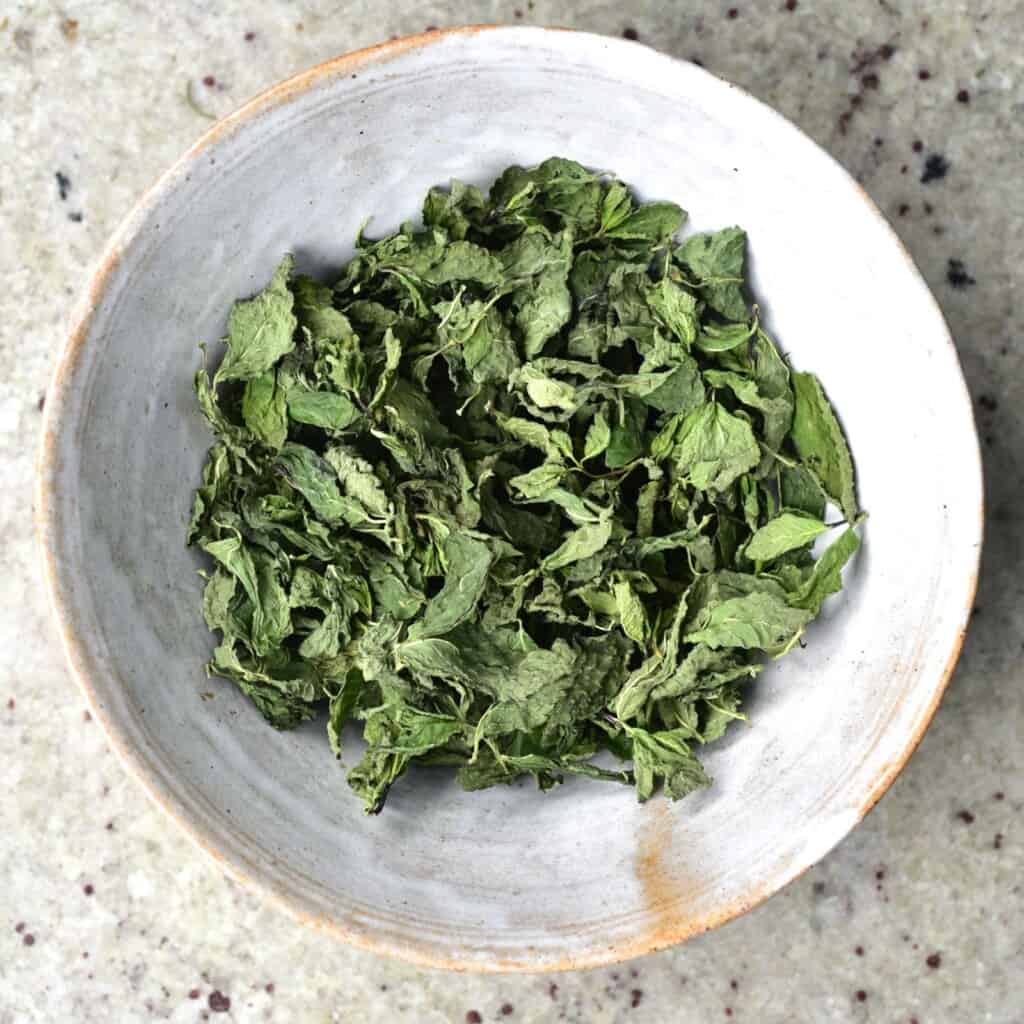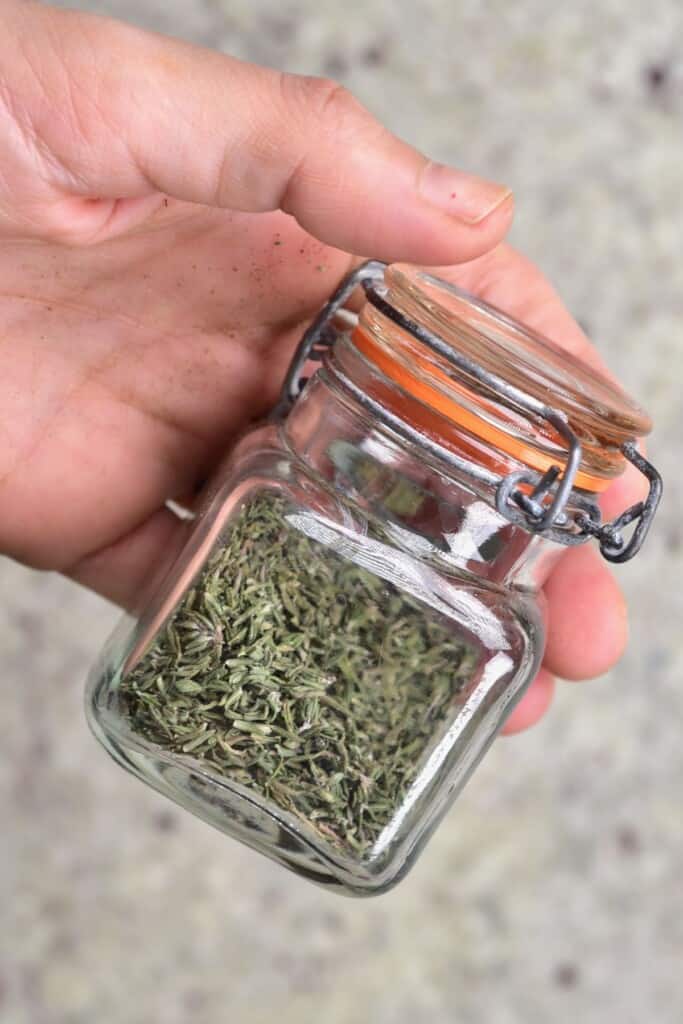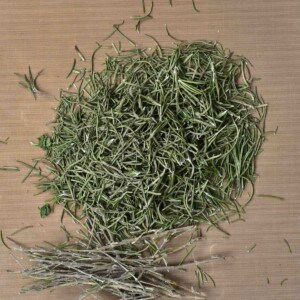The past few years have dawned a DIY era in my kitchen, and I’ve been drying/dehydrating ingredients left, right, and center. I’ve already shared methods for ‘sun-dried’ tomatoes, homemade milk powder, and onion & garlic flakes (among many other DIYs). Now, it’s time for herbs to get involved with this post on how to dry rosemary. There are so many ways to use rosemary – yet, there’s still always an excess of the herb. While I do successfully store herbs in the fridge and freezer, learning how to dry rosemary at home can provide you with months of product that is often far fresher and better-tasting than store-bought dried varieties.
The Benefits of Rosemary
Other than using rosemary to add flavor to foods, fresh and dried rosemary has also been used for years to turn into healthful tea, powdered extracts, and rosemary oil. As impressive as the taste (and smell) of rosemary is, this herb is also a good source of several vitamins and minerals. These include vitamin A, C, and B6, as well as iron and calcium. Rosemary is a rich source of antioxidants – which contain anti-inflammatory and antimicrobial properties. It has been used to aid digestive issues, such as heartburn, appetite loss, and various gut and liver issues. It may also act as a cognitive stimulant and can help to boost memory and focus. There are even studies to show that rosemary could help protect our skin from sun damage. However, many of these ‘benefits’ are still in the ‘early research’ stages. (Source) It’s important to note that different rosemary ‘products’ are used for different purposes. For example, rosemary oil is often associated with combatting hair loss and is also used within soaps and perfumes. Furthermore, it is important to remember that the overconsumption of rosemary can lead to several adverse side effects – though you’re unlikely ever to reach the amount needed to trigger these through food sources alone.
How To Dry Rosemary
Drying fresh rosemary is actually very simple – regardless of which method you use. The main differences are the heat used and the time it takes to achieve the results. I love my dehydrator – it is by far the easiest way to dry any ingredient while maintaining optimal nutrients (which can be difficult with oven-drying), yet within a far shorter timeframe than air-drying. Dehydrating rosemary takes mere hours. Drying rosemary in the oven is the quickest and ‘next best option’ to using a dehydrator when you want to dry herbs quickly. Tough oven-drying rosemary is quick, though, it does run the risk of ‘burning’ the herbs – so it should be done with caution. In comparison, air-drying rosemary uses no heat at all, but can take weeks to work, and won’t be possible in all climates. Before you dehydrate the rosemary with your method of choice, first, rinse it under running water or by submerging it in a bowl of water. Then, pat dry the sprigs.
In A Dehydrator
Lay the rosemary sprigs in a single layer across your dehydrator tray/s, with some space between (so the air can circulate for even, quicker drying). Dry at 95º-105ºF/35º-40ºC for between 2-4 hours until the needles are brittle and easily separate from the stem. The leaves should snap rather than bend. Check on them after the two-hour point and every 15-20 minutes, until ready. Depending on overall humidity (of the fresh rosemary and of the surrounding area) drying time could be longer, up to 8 hours.
In The Oven
After rinsing and drying the rosemary, lay them out on a parchment-lined baking tray/s with space between for air to circulate. Place in the oven at its lowest temperature, ideally under 105ºF/40ºC. Depending on the temperature, this process will take a different amount of time. I suggest checking on them at the 1-hour mark and every 15 minutes after that. Dry at 210ºF/100ºC for 1 hr or at 150-175ºF/65-80ºC for about 2hrs or less. If your ovens lowest temperature is quite a lot higher than mine, it may be best to use a wooden spoon to slightly prop the oven door open (this isn’t great for energy usage but will lower the overall temperature within the oven, so you don’t ‘cook’ your rosemary. Drying rosemary this way shouldn’t take more than a few hours.
Air-drying
This is best for those who live in fairly dry climates. The process will also be sped up for those in warmer climates. Make sure to clean your rosemary well, and then gently pat it dry with a kitchen towel. I like to make a DIY hanging apparatus by simply taping a bit of twine/string between two areas in my kitchen (choose a well-ventilated area that isn’t in direct sunshine). Tie the sprigs of rosemary together near their base with more string – like a bouquet (you can make several smaller ones) – and attach this string to your ‘hanging apparatus’. Alternatively, you could hang them from a clothes hanger, or even purchase and use a herb drying rack. Allow the sprigs to hang until they dry. This time can vary based on the weather, humidity, and ventilation. In the UK, this can take between 2-3 weeks, depending on the weather. Due to the long drying time, it can be a good idea to cover the herbs with a ventilated ‘protective covering’ like a paper bag or a nut milk bag – to avoid dust settling on the drying rosemary herbs (and little critters). Check on them regularly to make sure no mold is growing. Once the leaves are brittle (and usually beginning to fall from the sprig), they are ready.
For Ground/Powdered
Feel free to separate your dry rosemary into full leaves and some to be ground into a powder (to avoid the hard texture in recipes). To make ground dried rosemary, place the leaves into a coffee/spice grinder or a food processor (though you’ll need to add enough to make the mechanism work). Once ground, you can sieve the mixture and re-process the remaining larger pieces once more.
How To Store Rosemary
Once dried, separate all the leaves from the stems by gently rubbing them (do this over a bowl) and then store them in a glass jar. Rosemary is preserved best when stored in a cool, dark location like a kitchen cupboard. Make sure to store in an airtight container to prevent any moisture from entering, which can cause mold. I always aim to use my dried rosemary within 6 months for optimal freshness, though it will last up to 12 months even.
Dried Rosemary Uses
There are tons of ways to enjoy dried rosemary. Here are just a few of my favorite rosemary uses:
Within compound butter.Added to cream cheese and other cheese recipes – like this Goat Cheese, Herby Vegan Feta, or Vegan Cashew Cheese.In bread products: like this bread, naan, or NY-style Bagels.In crackers: like these seeded crackers or Naturally Coloured Healthy Crackers.As part of spice blends & herb salt.Used for rosemary tea: Add 1tsp dried rosemary and steep for 4-5 minutes. Within marinades and dressings.Over grilled/roasted vegetables and proteins – like homemade tofu and also with dishes with garlic confit/ tomato confit. Within cocktails and ‘herby’ drinks.Within soups, sauces & stews – like this Homemade Roasted Tomato Sauce or Easy Vegan Potato Leek Soup.
Related DIYs
How To Dry MintHow To Dry ThymeDIY Dried Mushrooms“Sun-Dried” Tomatoes (In Oven or Dehydrator)Garlic Flakes (+ Dried Minced Garlic)Onion Flakes (2 methods)How to Make Ginger Powder (Two Methods)How To Make Herb Salt (Rosemary Salt Blend)
If you try this dry rosemary DIY, then let me know your thoughts and any questions in the comments. I’d also really appreciate a recipe rating and would love to see your recreations – just tag @AlphaFoodie.




